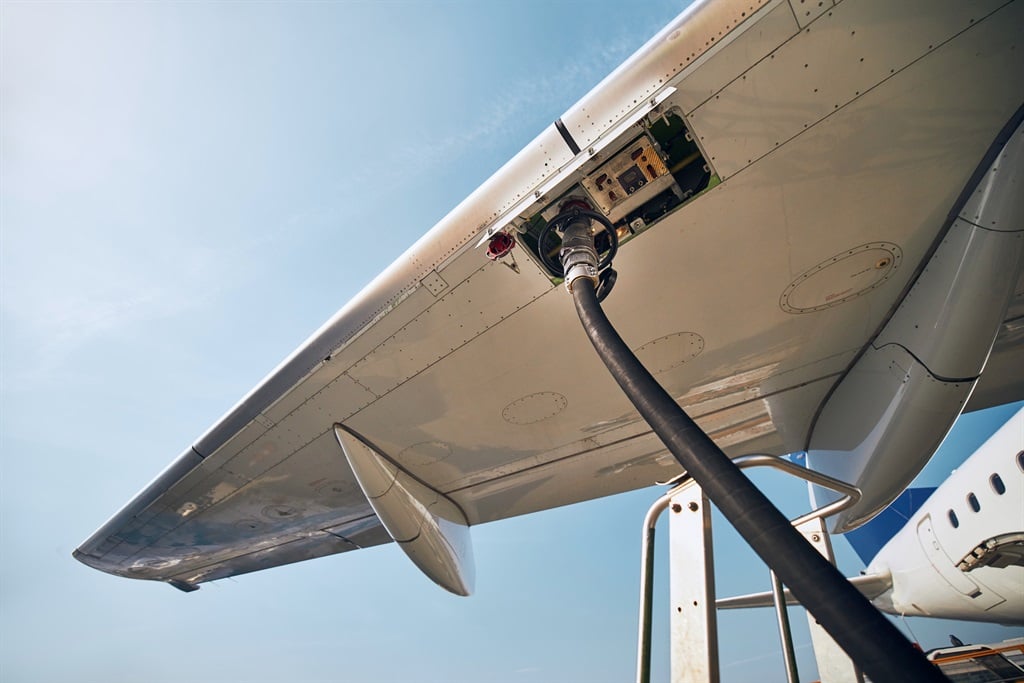
- The Transnet strike can lead to SA airports once again facing jet fuel shortages, warns the CEO of the Airlines Association of Southern Africa.
- He and the regional vice-president for Africa and the Middle East of the International Air Transport Association called for cooperation between the SA government and fuel suppliers to plan for adequate jet fuel supplies.
- This is especially important as SA is going into its peak summer tourism season, they said.
- For more stories, go to the News24 Business front page.
If the Transnet strike is prolonged, jet fuel supplies to South Africa's main airports could be jeopardised ahead of the peak summer tourist season, and at a time when airlines can least afford further disruption, warns Aaron Munetsi, CEO of the Airlines Association of Southern Africa.
This would not be the the year's first jet fuel crunch. A recent shipment of jet fuel to the Cape Town port was delayed due to bad weather, while earlier this year, damage to a railway line during floods in KwaZulu-Natal impacted supplies to O R Tambo International in Johannesburg.
"We bit the bullet in Cape Town recently and we are not out of the woods yet. We cannot be caught unawares again, as are going into peak season, and our airlines cannot take off if there is no fuel," Munetsi said at the opening of AASA's 52nd Annual General Assembly taking place near Kleinmond.
'Economically crippling'
"Our meeting here takes place against the backdrop of what threatens to be an economically crippling strike by rail and harbour workers. Although AASA supports the Constitutional rights of labour to protest and strike, in this instance South Africans and their economy will bear the brunt of this action and the impact will ripple throughout the rest of the region and everyone will be poorer," said Munetsi.
"We call on both sides to quickly find common ground and resolve the dispute. If the strike is prolonged, aviation will not be spared, as it will jeopardise fuel supplies to our main airports at a time when airlines and our industry partners can least afford further disruption."
AASA is deeply concerned over the likely consequences of further disruption to what Munetsi called "the fragile jet fuel supply".
"We urge government and the fuel suppliers to urgently apply themselves to establishing a far more robust and resilient plan for such eventualities. We cannot afford for our travel and tourism industry's - or our economy's - recovery to be derailed through failures to plan and procure suitable provisions of jet fuel and by not implementing policies and regulations that insulate aviation from the impact of any disruptions," he said.
During a panel discussion, Terence Delomoney, group executive of operations management at Airports Company SA (ACSA) said that, although there is a fuel forum consisting of various role players, in the wider supply chain there seems to be a lack of transparency that is a cause of concern. He too warned that another jet fuel crunch could spell disaster for SA's upcoming peak tourism season.
Their warnings were echoed by Kamil Al-Awadhi, regional vice-president for Africa and the Middle East of the International Air Transport Association (IATA).
"It was alarming that very recently we found ourselves on the brink of a calamity when fuel stocks at Cape Town International Airport – one of Africa's most important gateway airports – ran so low that airlines were first rationed and then told to refuel elsewhere," Al-Awadhi told delegates.
"Frankly, it is unacceptable that fuel suppliers should have exposed airlines and their customers through their poor planning and inadequate fuel provisioning. We cannot express it in simpler terms – we require far better planning and coordination. We call on the government and fuel suppliers to move with urgency and put in place a robust resilience plan to ensure sufficient stocks of aviation fuel are always available for airlines, more so, as we approach the peak season."
Southern Africa lags behind
Al-Awadhi said a breakdown of airline capacity in Africa by aviation data provider OAG shows that the North Africa market is now 3.2% above pre-pandemic 2019 traffic levels, Central and West Africa is 3.8% above 2019 levels, and Eastern Africa is 6.4% below. However, Southern Africa, is still 32.7% below 2019 levels.
"If we zoom in on Southern Africa lagging behind in the recovery, we can easily spot issues of market access and connectivity. What the numbers describe is the impact of several carriers' exits from the market and the harmful distorting effects of an out-dated regulatory framework of bilateral air service agreements between governments, that restrict expansion and market access. They do so by designating points of entry, setting capacity caps and limiting the number of flights airlines, designated by the respective countries, may operate," he said.
"In Southern Africa, with the exception of Angola, the absence of local inter-continental operators from routes they have been designated, is causing particular pain as it has left many markets under-served. By choking capacity in this way, commercial opportunities are being squandered and slowing the recovery of lucrative long-haul foreign tourism and trade. In turn, this is delaying the delivery of socio-economic benefits and attainment of many of the UN Sustainable Development Goals in the region."
For him the solution is not necessarily "to start or prop up unviable airlines". It is rather to review and overhaul the regulatory regime and replace it with one that is fit for purpose.
"Since 1988 we have spoken about the virtues and benefits of the Single Africa Air Transport Market (SAATM). We cannot afford to spend another 30 years convening talk-shops about it. It is now time for governments to demonstrate their courage and commitment by implementing it," he said.
Furthermore, Al-Awadhi cautioned that, while it is tempting for some roleplayers in the aviation value chain to try and make up for lost revenues during the Covid-19 pandemic.
"Now is not the right time to be raising charges, increasing levies, hiking carbon taxes or introducing new taxes on air transport, trade or tourism," he said.
"We are mutually co-dependent on each other. Every increase deters increasingly cost-sensitive customers, resulting in fewer travellers and even less revenue, not just for airlines, but for all stakeholders across the value chain including airports, ground handlers, suppliers and air navigation services. This is especially important against a backdrop of high oil prices."




 Publications
Publications
 Partners
Partners












